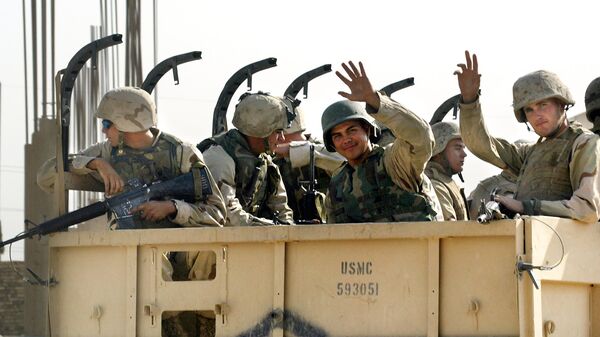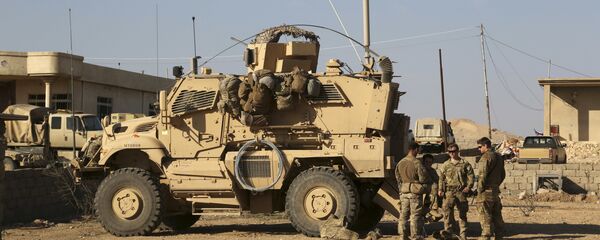On 5 January, the Iraqi parliament voted to terminate the operation of the US-led anti-Daesh* coalition and passed a resolution demanding the withdrawal of all foreign troops stationed in the country. The move came following the assassination of Qasem Soleimani, the Iranian Quds Force commander, in a US drone strike near Baghdad International Airport two days earlier, which also killed senior member of Iraq's Shia Popular Mobilisation Forces Abu Mahdi Muhandis, who was accompanying the Iranian military official.
Following the developments, the US State Department’s Bureau of Near Eastern Affairs mulled over the possibility of cutting $250 million in military assistance to Iraq, which has already been approved by Congress for this fiscal year, The Wall Street Journal reported, citing an email exchange by the State Department and the Department of Defence. However, Dr Tarek Cherkaoui, the managing director of the TRT World Research Centre, believes that this decision may be “ill-conceived” and damaging to the US’ international image as an outspoken promoter of democracy in the Middle East.
“Ironically, what we are witnessing here is a de-facto rejection of a democratic process in Iraq”, Dr Cherkaoui argued. “The fact that the US State Department’s Bureau of Near Eastern Affairs is preparing possible cuts of $250 million in military aid to Iraq means that Washington is, in effect, actively sanctioning an Iraqi parliamentary resolution”.
While the Iraqi parliamentary vote remains non-binding, the country’s caretaker Prime Minister Adel Abdul-Mahdi has reportedly stated that the final decision on whether or not to expel the Americans from their soil would be taken by his successor. The US, which was invited to Iraq in 2014 to fight an incursion by Daesh, has continued to voice fierce opposition to the Iraqi parliament’s move, reportedly warning that it could effectively shut down Baghdad’s access to its central bank’s account at the Federal Reserve Bank of New York if the country goes through with its decision to expel American troops.
“Such a decision, if implemented, means that the Iraqi sovereignty has been violated twice: The first time by having a foreign leader (Qasem Soleimani) and an Iraqi militia leader (Abu Mahdi al-Muhandis) assassinated on its soil, and the second time by having its access to its own financial account restricted”, Dr Cherkaoui asserted.
The head of the TRT World Research Centre also suggested that the recent developments may also signify the end of the close relationship between the two states, with Washington losing its symbolic power over post-2003 Iraq.
“The existence of a considerable wedge between the two sides at present, and the use of coercive diplomacy, signify that the US power spheres have squandered their soft power capital in Baghdad”, the expert concluded.
In 2011, American military personnel withdrew from the country in accordance with the 2008 Status of Forces Agreement and the “Strategic Framework Pact”, eight years after the US invasion of Iraq in 2003.


